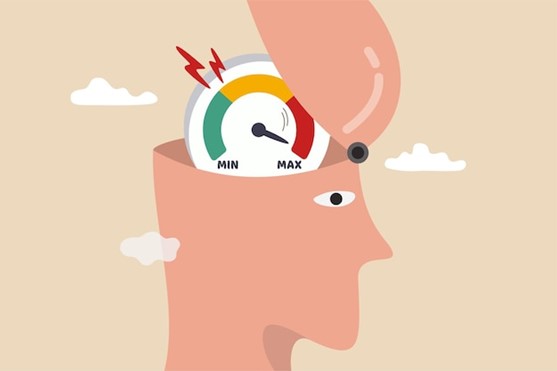In today’s digital age, work-related electronic communication has become increasingly prevalent. With the advancement of technology, employees are now constantly connected to their work through various electronic devices such as smartphones, laptops, and tablets. This extended work-related electronic communication has revolutionized the way we work, allowing for greater flexibility and accessibility. However, it has also brought about certain negative consequences, particularly on mental health. This article delves into the impact of extended work-related electronic communication on mental health, specifically focusing on the concepts of fatigue and depression.
Understanding the Impact of Extended Work-Related Electronic Communication on Mental Health
Extended work-related electronic communication has been found to have a profound impact on mental health. The constant connectivity and expectation of immediate response can lead to increased stress levels and feelings of overwhelm. The blurring of boundaries between work and personal life can make it difficult for individuals to switch off and relax, leading to burnout and exhaustion. This can have detrimental effects on mental well-being, including fatigue and depression.
The Concept of Fatigue and Its Relationship to Extended Work-Related Electronic Communication
Fatigue, both physical and mental, is a common consequence of extended work-related electronic communication. The constant need to be available and responsive can result in sleep disturbances, as individuals may feel compelled to check their work-related notifications late into the night. This lack of quality sleep can lead to chronic fatigue, impacting not only work performance but also overall mental and physical health. Moreover, the cognitive demands of constant communication can exhaust the brain, resulting in mental fatigue and reduced concentration.
The Link Between Extended Work-Related Electronic Communication and Depression
Extended work-related electronic communication has also been linked to an increased risk of depression. The constant pressure to be available and perform at a high level can lead to feelings of inadequacy and self-doubt. The lack of downtime and personal space can leave individuals feeling emotionally drained and isolated. Moreover, the blurring of boundaries between work and personal life can prevent individuals from engaging in activities that promote mental well-being, such as exercise, hobbies, and spending time with loved ones. These factors can contribute to the development of depressive symptoms.
Exploring the Psychosocial Hazards Associated with Extended Work-Related Electronic Communication
Extended work-related electronic communication brings about various psychosocial hazards that can negatively impact mental health. The constant connectivity can blur the line between work and personal life, eroding the boundaries that are essential for maintaining a healthy work-life balance. This can lead to increased stress levels, reduced job satisfaction, and impaired psychological well-being. Additionally, the constant pressure to be available and responsive can result in heightened anxiety and feelings of being overwhelmed.
Australian WHS Laws and Regulations Related to Psychosocial Hazards
In Australia, the Work Health and Safety (WHS) laws and regulations address the psychosocial hazards associated with extended work-related electronic communication. These laws require employers to provide a safe and healthy work environment, which includes addressing psychosocial risks. Employers are mandated to identify and assess these risks, implement control measures to mitigate them, and regularly review and monitor their effectiveness. By complying with these laws, employers can help reduce the negative impact of extended work-related electronic communication on mental health.
Tips for Managing Fatigue and Depression Caused by Extended Work-Related Electronic Communication
To manage the fatigue and depression caused by extended work-related electronic communication, it is important to prioritize self-care and well-being. Establishing clear boundaries between work and personal life is crucial. This can be done by setting designated times for work-related electronic communication and implementing digital detoxes during non-work hours. Engaging in stress-reducing activities such as exercise, meditation, and spending time with loved ones can also help alleviate fatigue and improve overall mental well-being. Seeking support from colleagues, friends, or professional counselors is essential for managing depression and building resilience.
Promoting a Healthy Work-Life Balance in the Digital Age
Promoting a healthy work-life balance in the digital age requires a collective effort from both employers and employees. Employers should foster a culture that prioritizes work-life balance, encourages employees to disconnect during non-work hours, and provides resources and support for mental health. Employees, on the other hand, should take responsibility for their own well-being by setting boundaries, managing their time effectively, and seeking help when needed. By working together, a healthy work-life balance can be achieved, reducing the negative impact of extended work-related electronic communication on mental health.
Conclusion: Taking Steps Towards a Healthier Work Environment
The impact of extended work-related electronic communication on mental health, particularly fatigue and depression, is a pressing concern in today’s digitalized world. It is crucial for individuals and organizations to recognize the negative consequences and take proactive steps towards creating a healthier work environment. By implementing strategies to manage fatigue, such as establishing boundaries and prioritizing self-care, and by promoting a healthy work-life balance, the detrimental effects of extended work-related electronic communication on mental health can be mitigated. Remember, your mental well-being matters, and it is essential to prioritize it in the digital age.
Contact WHS and Training Compliance Solutions for your WHS training.
Access Work Health and Safety Books from Amazon: Work Health and Safety












